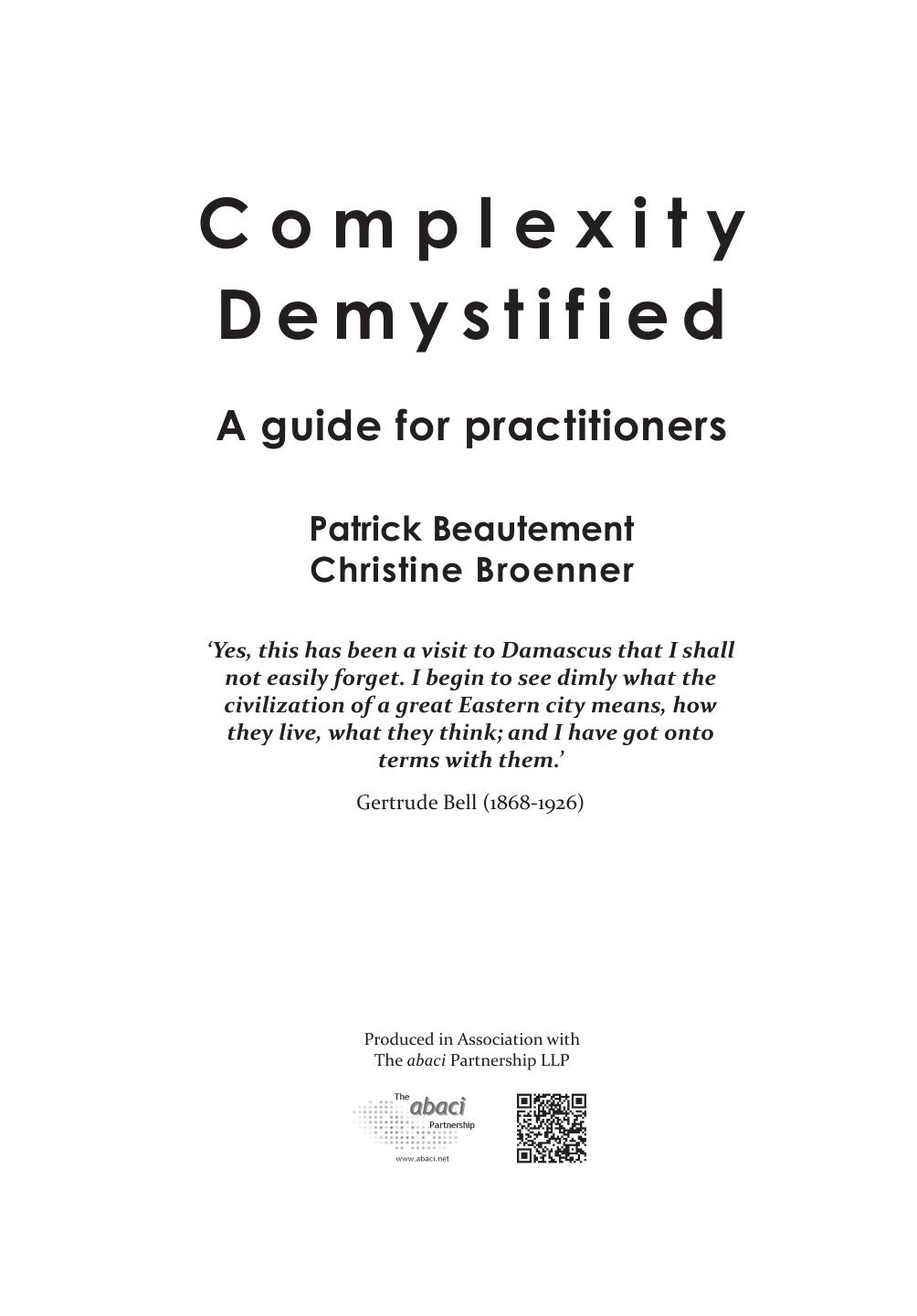

Most ebook files are in PDF format, so you can easily read them using various software such as Foxit Reader or directly on the Google Chrome browser.
Some ebook files are released by publishers in other formats such as .awz, .mobi, .epub, .fb2, etc. You may need to install specific software to read these formats on mobile/PC, such as Calibre.
Please read the tutorial at this link: https://ebookbell.com/faq
We offer FREE conversion to the popular formats you request; however, this may take some time. Therefore, right after payment, please email us, and we will try to provide the service as quickly as possible.
For some exceptional file formats or broken links (if any), please refrain from opening any disputes. Instead, email us first, and we will try to assist within a maximum of 6 hours.
EbookBell Team

5.0
28 reviewsPractitioners often say: 'We need to do something differently but are not sure what to do or how to do it' and 'Scientists explain complexity but don't tell you what to do in practical terms'. This book has been written to offer solutions for these practitioners - to provide an Approach for 'putting complexity to work'. Practice is, de facto, determined by changing contexts. In a specific instance, what needs doing will depend on the circumstances, and cannot be bounded or decided in advance. But when most auditors, donors or managers demand tangible, target-driven results within a fixed time frame, how can practitioners convince them that working with the open principles of complexity will lead to more successful and sustainable solutions? This book is not 'yet another' complexity book. What it offers is an in-depth, systematic, Framework that practitioners can use to focus on the dynamic phenomena already active in their working context, to be able to shape and influence these phenomena 'on the fly'. The authors present six case studies, including the UK Fuel Crisis (2000) and the 2010 Gulf of Mexico Oil Spill. Their Approach reveals a clear understanding of the stresses and strains that were felt throughout the crises and how these might have been handled differently had an appreciation of the underlying complexity been part of standard practice. Drawn from their own experiences and those of other practitioners, and to bridge the gap between theory, experience and practice, the authors have produced a clear and erudite 'bible' for realising the inherent benefits of 'putting complexity to work'.